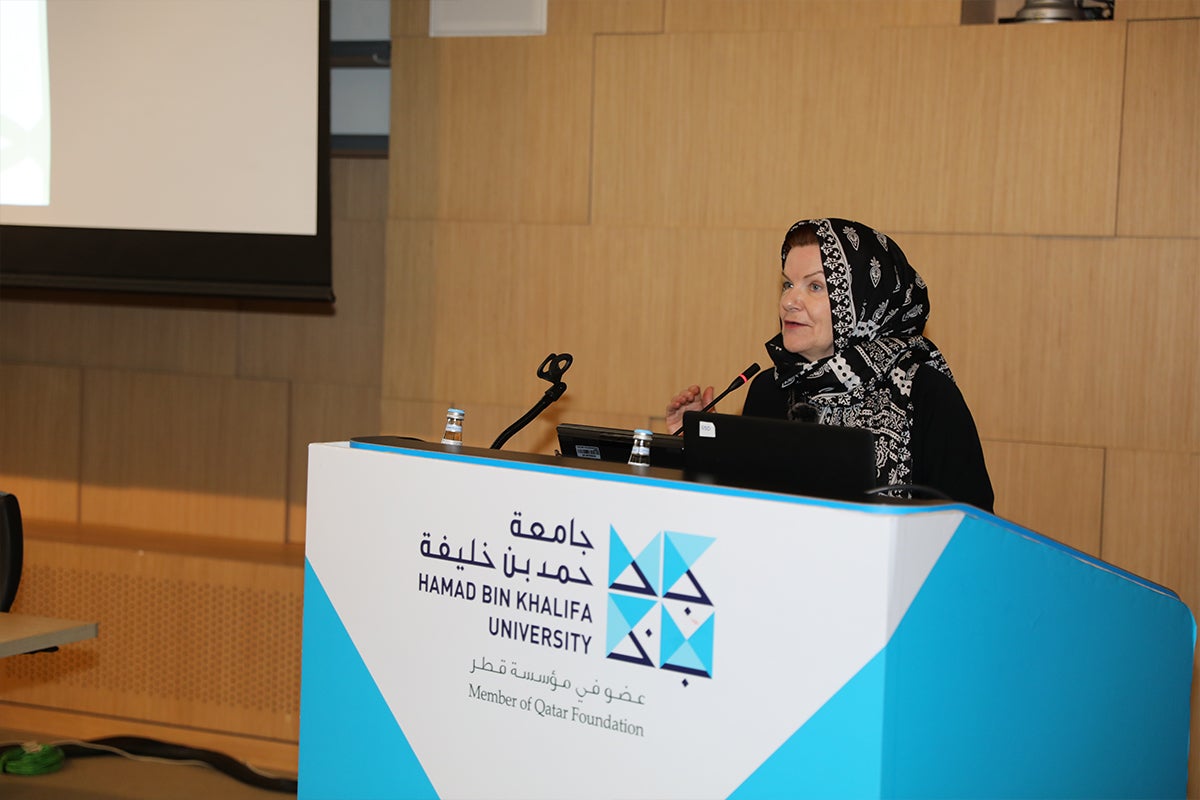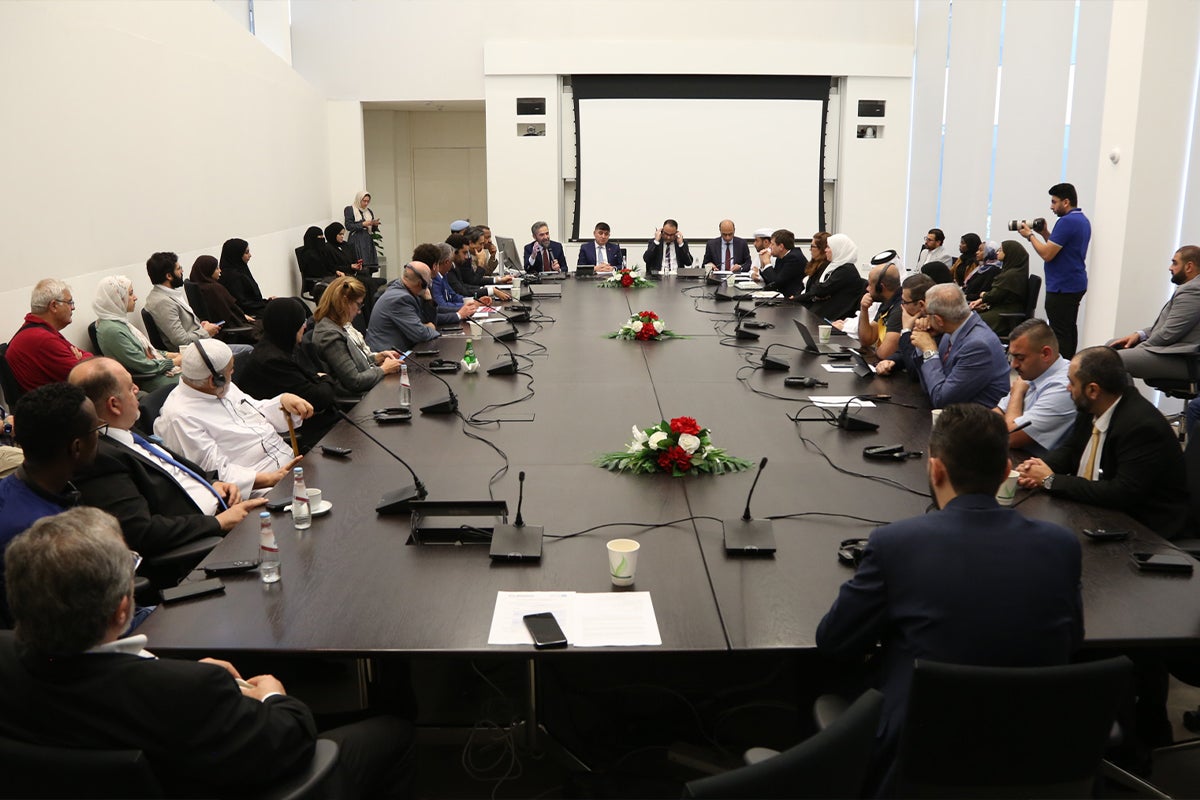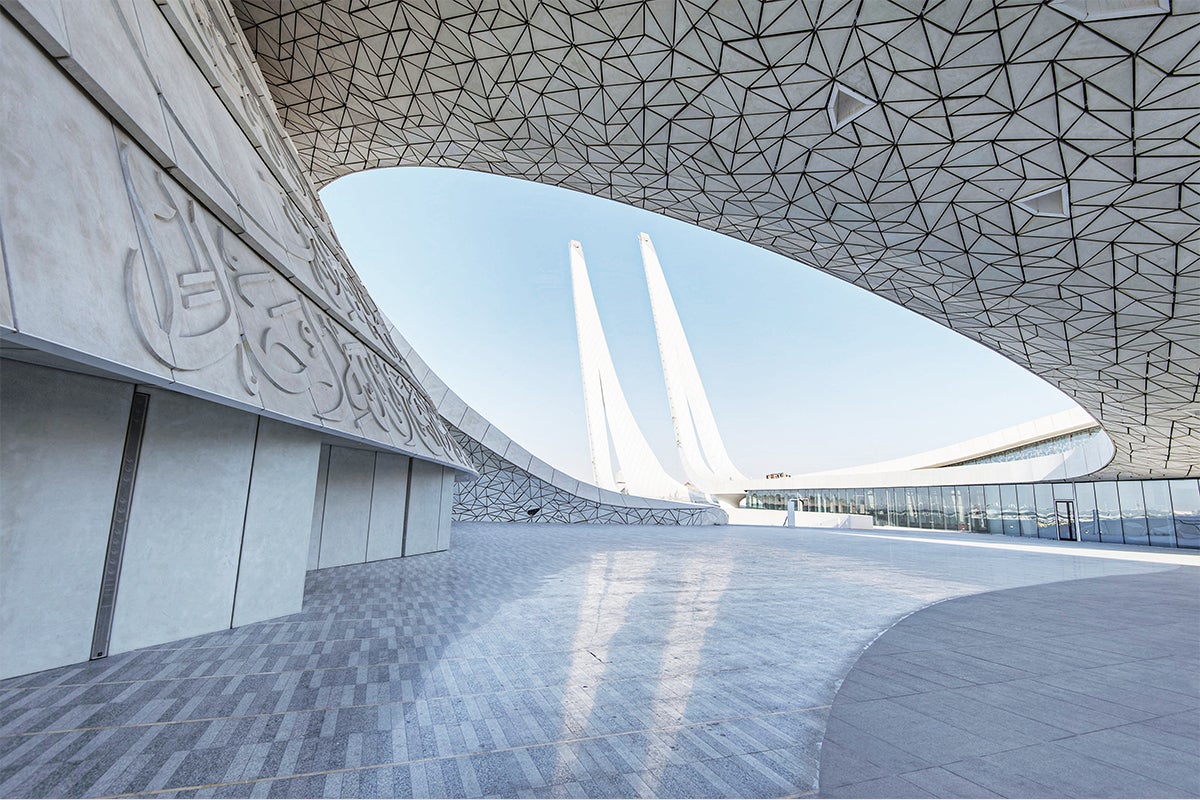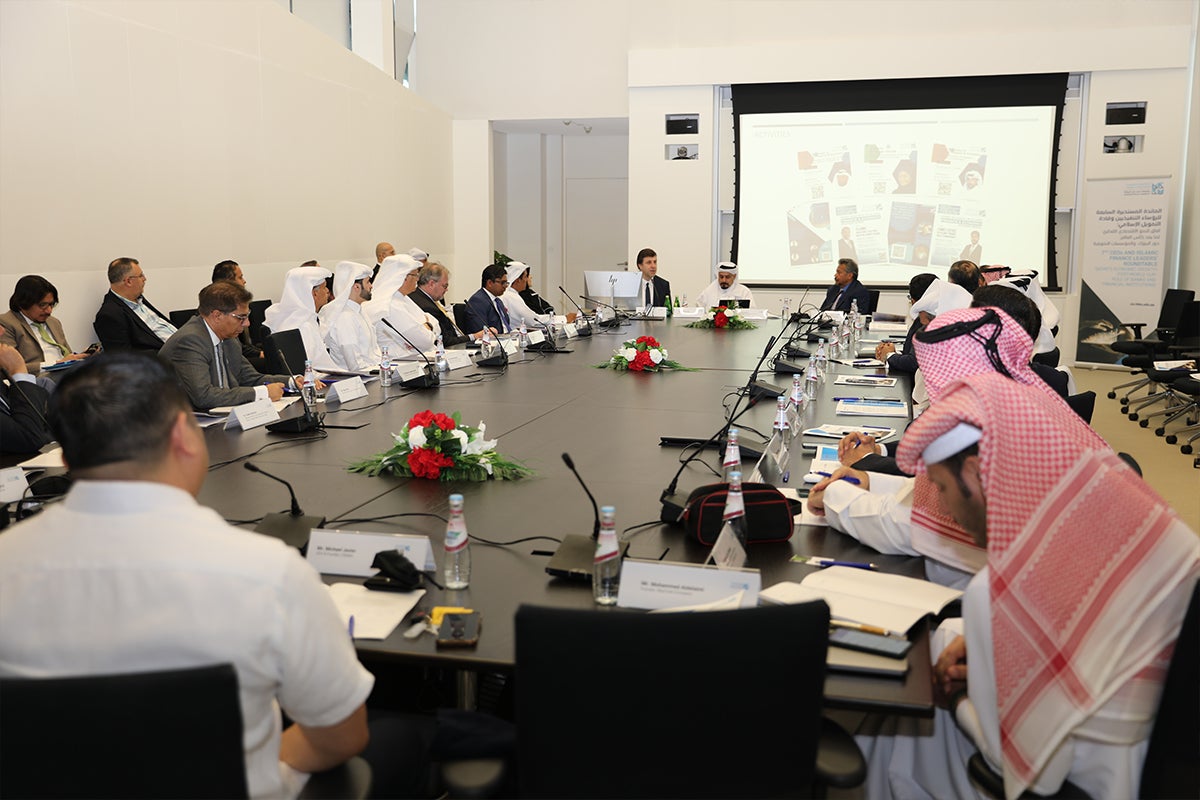Authored by Dr. Gavin Picken, Professor, College of Islamic Studies
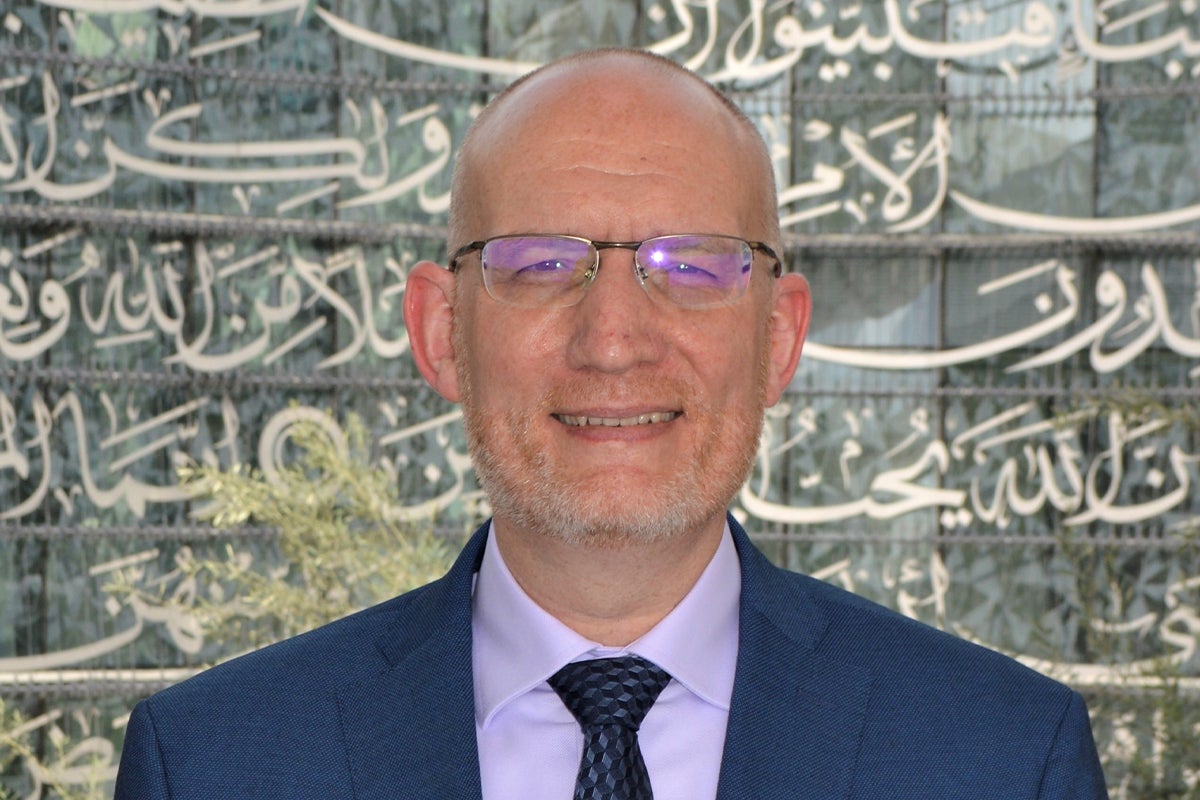
Intermittent fasting has become a popular health and nutrition trend in the past few years. The practice has many proven health benefits including improved thinking and memory, and heart health, as well as physical performance. Fasting also helps to reduce obesity and insulin resistance, two major contributors to type 2 diabetes. It is interesting to note, therefore, that for centuries Muslims have practiced a form of intermittent fasting as part of their regular, religious practices. The health benefits of intermittent fasting that have been observed by contemporary science, however, are entirely incidental for Muslims. When they fast the month of Ramadan they are not primarily seeking improved health, but fulfilling a religious obligation considered one of the Five Pillars of Islam.
From its inception in the second year after the Hijrah of the Messenger of Allah from Mecca to Medina (624 CE), fasting the month of Ramadan became an annual religious practice of historical and civilizational significance, which continues to be celebrated by Muslims around the world. While other religions practice a variety of forms of fasting, Ramadan is unique to Muslims and its significance is further enhanced by the revelation of the Qur’an also occurring in this sacred month. Indeed, there are a number of Hadiths regarding the significance of Ramadan and perhaps one of the most captivating is recorded by Imam Muslim (d. 261/875) in his rigorously authenticated collection (ṣaḥīḥ) that states: “At the beginning of Ramadan the gates of Paradise are opened, the gates of Hellfire are locked, and the devils are chained.” (no. 1079).
Taken at face value, this narration gives much encouragement to fasting Muslims, as it would indicate that one of their most significant challenges is temporarily neutralized. It is worthy of note, however, that Muslim scholars have collated several Hadiths on this topic and have been much more conservative in their interpretation, commenting that the devils mentioned in the text are of specific type referred to as “rebellious devils” (marida). This category of devil is mentioned in the Qur’an in verses 37: 6-7: “Indeed, We adorned the closest heaven with beautiful planets, and as a protection from every rebellious devil (shayṭān mārid)”, and such devils are characterized as being disobedient, insolent and unruly. Thus, although not all devils are chained and rendered ineffective during Ramadan, at least those displaying the most enmity and deviousness towards humanity are held in check.
It is not surprising, therefore, that during Ramadan not all negative influences are nullified, but the act of fasting itself has a direct positive effect on the ability of Satan to influence human beings, as the Messenger of Allah said: “Indeed, Satan flows through the son of Adam as his blood flows through him, so restrict his flow with hunger.” Thus, the very act of fasting limits Satan’s influence on the ego-soul (nafs) by inhibiting its pleasure-seeking behavior, preventing its bad habits, and weakening and reducing its desires.
It is perhaps for this reason that the Messenger of Allah would also refer to Ramadan as the month of patience (ṣabr) as patience causes the ego-soul to be restricted from its desires and forces it to obey the command of its Lord. It has also been narrated from the Messenger of Allah that he said: “Fasting is half of patience” and that “Patience is half of faith (imān).” Thus, from this perspective, fasting can be considered as a quarter of a Muslim’s faith.
The Arabic word for fasting the month of Ramadan as a legally binding duty is ṣiyām, which is linguistically related to the word ṣawm, indicating “abstinence.” This is indicated in the Qur’an in verses 19: 25-6, regarding the birth of Jesus, as it was said to Maryam: “And pull the date palm trunk towards you, and fresh, ripe dates will fall down. So eat, drink and find comfort therein, and if you see anyone say to them, ‘I have sworn an oath of abstinence (ṣawm) to the All Merciful and as such, I will not speak to another soul.’” Thus, Muslims “abstain” from eating, drinking and sexual relations from dawn till dusk during Ramadan, and this constitutes their “fast.”
It can be observed, however, that while fasting is a purely physical form of worship for many people, some transcend this purely bodily act and extend it to their spiritual selves. Thus, they do not only practice abstinence of food and drink to their stomachs but also cause their hearing, sight, words, movement, and thoughts to abstain from anything that invokes Divine censure. Thus, their fasting does not stop at the purely physical but extends to an awareness of abstaining from anything that is reprehensible, which is the primary purpose of fasting, as is indicated in the Quranic verse that initiated fasting as a compulsory duty (2: 183): “O you who believe, fasting has been made compulsory for you as it was made compulsory for those who preceded you, in the hope that you increase in God-consciousness.” This is also why the Messenger of Allah said: “Whoever did not refrain from lying and acting according to it, then Allah has no need of him to refrain from eating and drinking” and “So many fasting people will have nothing from their fast other than hunger and thirst.” Thus, someone can be “fasting”, i.e. fulfilling the physical requirements of the fast, but in reality, they are missing the essence of fasting, which is to awaken the mind, heart, and soul to focusing one’s attention on the Divine.
Thus, if while fasting in Ramadan, we still get annoyed by other drivers on the road, feel upset with our spouses, and get irritated with our children, then we need to take a long look at ourselves and think on what type of fasting it is that we are undertaking. Moreover, we should contemplate on how this reflects on the state of our souls, and how we can bring about change before Ramadan visits us once again - insha’ Allah.
This article was originally published in The Peninsula.
Related News
